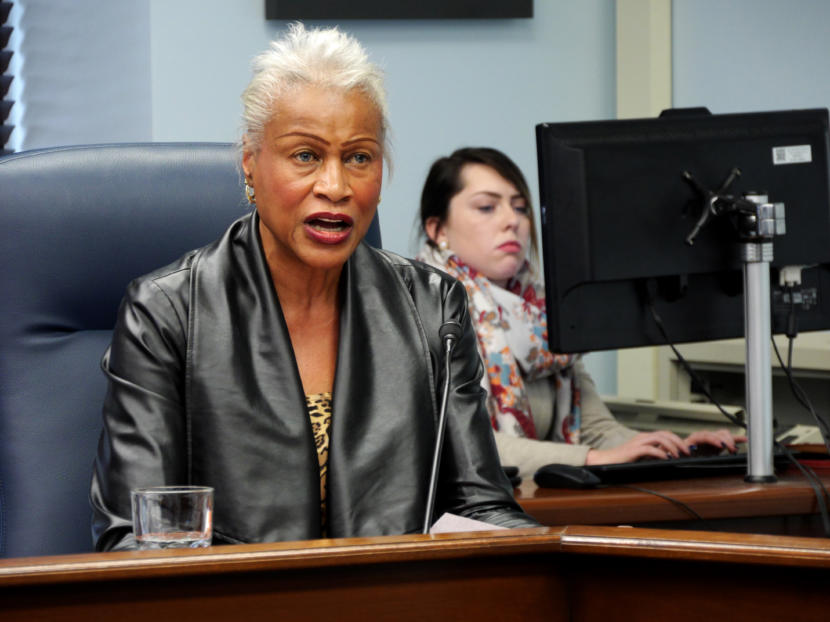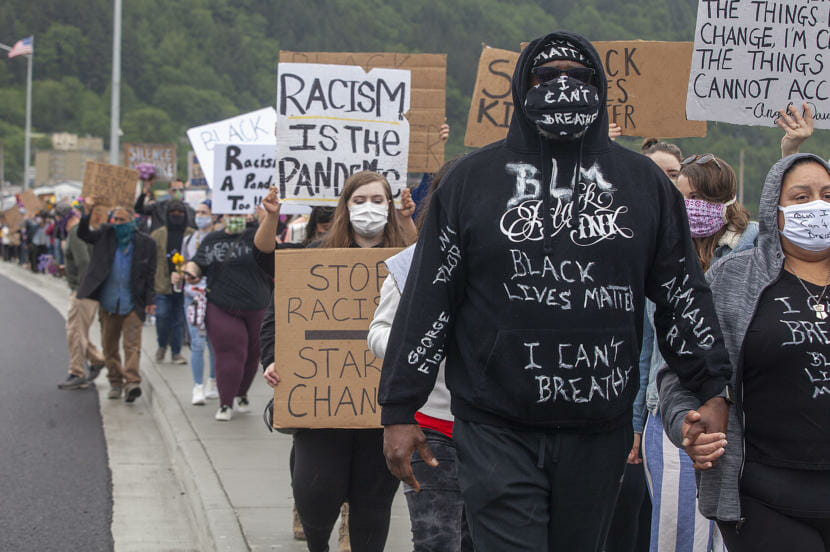
While there are ongoing dialogues nationwide on racial justice in policing, one Alaska legislator is hoping to change the way police serve in the state.
Sen. Elvi Gray-Jackson has proposed a series of police reform legislation in response to last summer’s protests against police brutality.
Gray-Jackson, who is one of two Black lawmakers in the state, calls her legislation “Turning Pain Into Progress.” It’s aimed at preventing police violence across communities in Alaska.
“The subject of police reform has been talked about a lot for years. OK. And nobody’s ever done anything; not really. Not in this community,” Gray-Jackson said.
The legislation consists of six bills that include a statewide ban on chokeholds and a ban on officers shooting at vehicles. Other pieces of the legislation require officers to follow de-escalation procedures and to provide a verbal warning before discharging a firearm.
Another piece requires an officer to intervene when they observe another officer violating standards if it’s safe to do so.
And the last two pieces would create a statewide database that tracks use-of-force incidents and would require all departments in the state to post their policies and procedures on their website.
Gray-Jackson said this isn’t a one-sided package. It’s intended to protect both the community and law enforcement.
“I mean, you know, in our community, we have not had instances to the level of George Floyd. But we have had instances, and I’m hopeful that, you know, bringing these bills forward and then being state statutes will prevent us from having situations that have been experienced on a national level,” Gray-Jackson said.
The Washington Post’s police shootings database has recorded 44 deaths by police in Alaska since 2015. Another public site, mappingpoliceviolence.org, counts 49 people since 2013.

Celeste Hodge Growden, who is Black, is the president and CEO of the Alaska Black Caucus.
“The goal is to have no lives lost. That’s the goal,” Growden said. “There just needs to be some mechanisms put in place to assure that.”
She said she would love to see a better relationship between law enforcement and communities of color, especially with the Black community.
Julie Smyth, who is Iñupiaq, summed up the Iñupiat community’s relationship with police during public testimony.
“It’s taboo for people in my community to call the police when there are issues because of how bad the mistrust is between my people and the police,” Smyth said.
Smyth also asked the committee to add language that would require officers to provide proof that their life is threatened.
The legislation has some backing from the law enforcement community.
Sergeant Jeremy Conkling, who is white, is president of the Anchorage Police Department Employees Association. He worked with Sen. Gray-Jackson as she drafted the legislation. He said much of it already reflects the training and practices at his department. Right now, officers are required to intervene when they see one of their colleagues violating standards.
“Not only is that ingrained in our culture here, it is required of all of our officers already,” Conkling said.
But Conkling said that while the bills reflect practices that make sense in a municipality like Anchorage, the policies may not be appropriate in rural Alaska.
“I am a very firm believer that policies and procedures of the police department should reflect you know, the culture in which the police department serves,” Conkling said.
Retired public safety commissioner Walt Monegan, who is part Tlingit and Yup’ik, said he’s experienced a litany of life-threatening scenarios where the bills might apply.
He expressed mixed feelings about the legislation.
“It’s hard to write a policy that will meet everything that you’re going to encounter out there,” Monegan said.
He said that it could cause huge headaches in enforcing some of the policies. He said it’s great that organizations like the Alaska Black Caucus are involved.
“But I think that more work needs to be done, if they’re going to take these kinds of actions, then look at the long term, not just in the perfect world aspect of it,” Monegan said.
Monegan did agree with one aspect of the bill: that the tactical chokehold — similar to the maneuver that former Officer Derek Chauvin used on George Floyd in Minneapolis — is outdated.
“The idea of a chokehold? I think it’s gone by the way, I mean, it’s gone. It should be gone. Because you can hurt somebody,” Monegan said.
So far, two of the bills have been through State Affairs committee hearings. But even if none of it becomes state statute, Growden at the Alaska Black Caucus said she won’t stop working toward a positive change in policing.
“One thing we won’t do is grow weary in doing good. We will do as our late Congressman John Lewis shared and that is: stay in good and necessary trouble to move us toward that beloved community,” Growden said.
For now, it’s up to the state’s elected lawmakers to decide the future of policing in Alaska.



